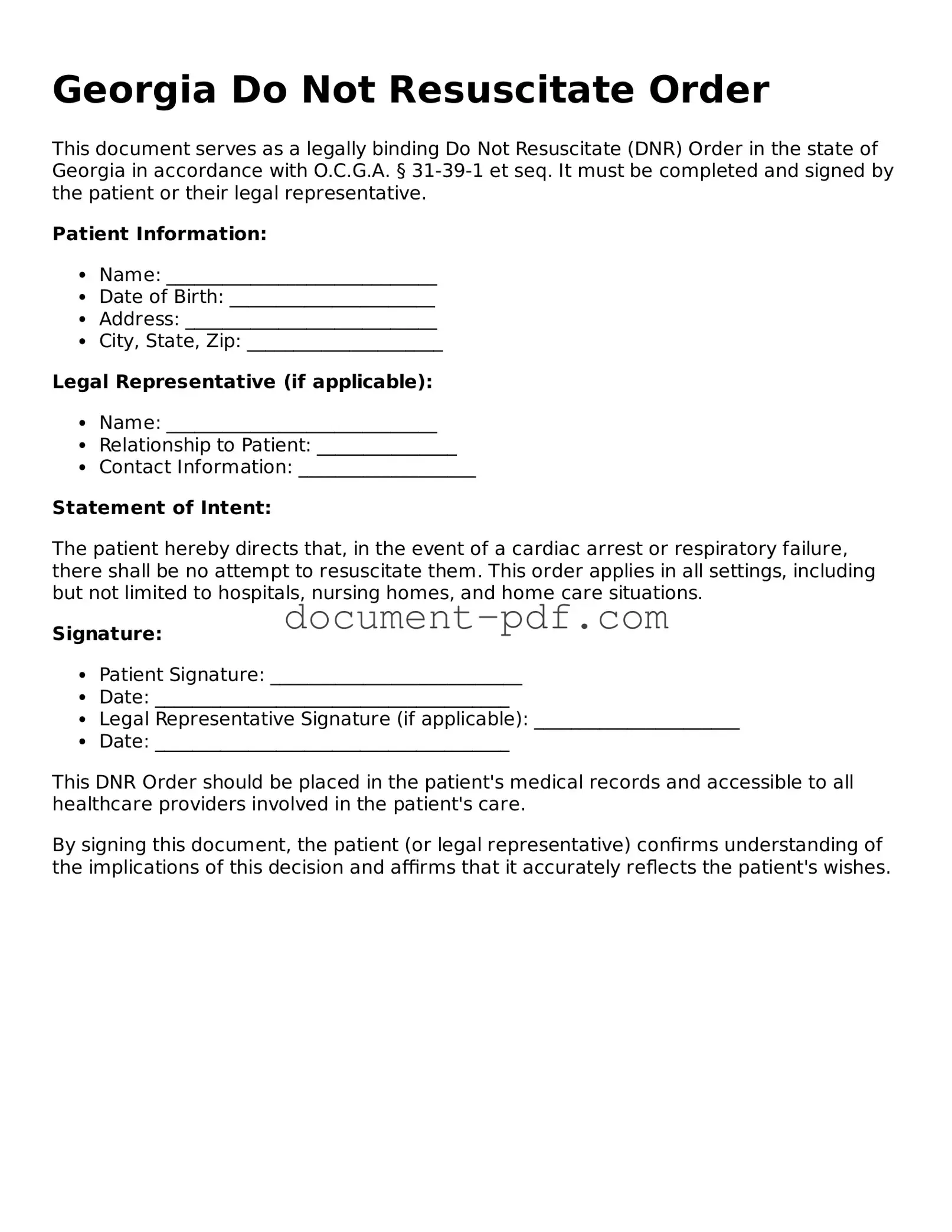Attorney-Verified Georgia Do Not Resuscitate Order Template
A Georgia Do Not Resuscitate Order (DNR) form is a legal document that allows individuals to express their wishes regarding resuscitation efforts in the event of a medical emergency. This form ensures that healthcare providers respect the patient's preferences about life-sustaining treatments. Understanding and completing this form can provide peace of mind for both patients and their families.
If you are ready to take this important step, fill out the form by clicking the button below.
Access Do Not Resuscitate Order Editor Here

Attorney-Verified Georgia Do Not Resuscitate Order Template
Access Do Not Resuscitate Order Editor Here
Finish the form without slowing down
Edit your Do Not Resuscitate Order online and download the finished file.
Access Do Not Resuscitate Order Editor Here
or
Click for PDF Form
